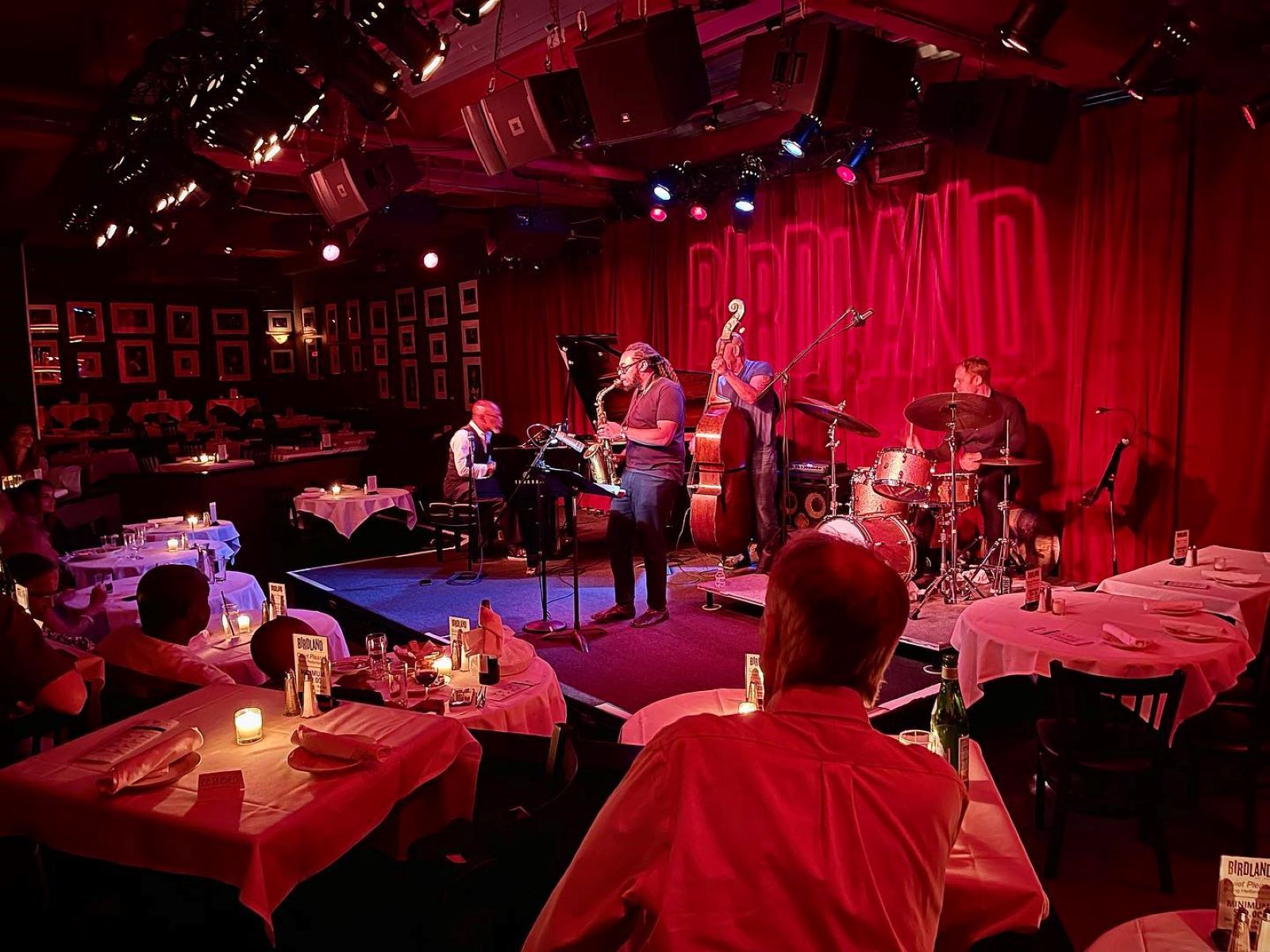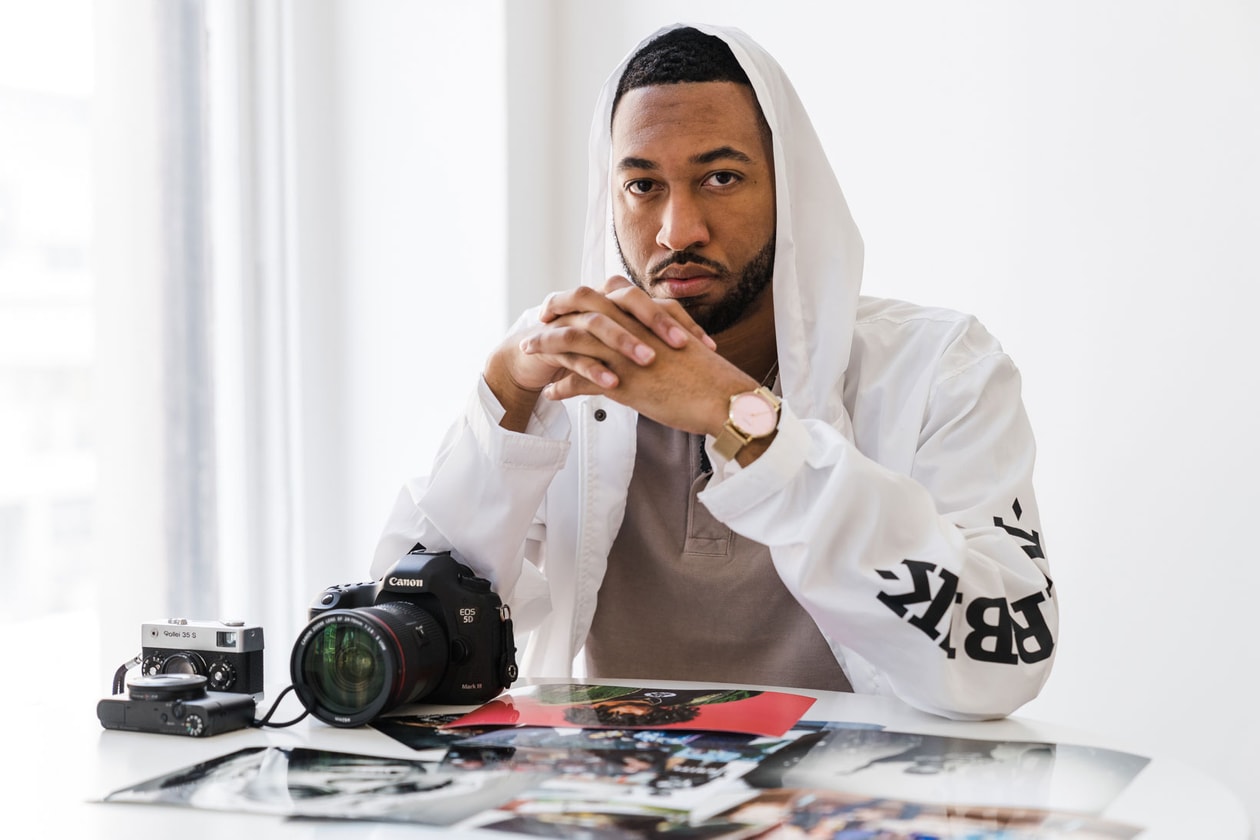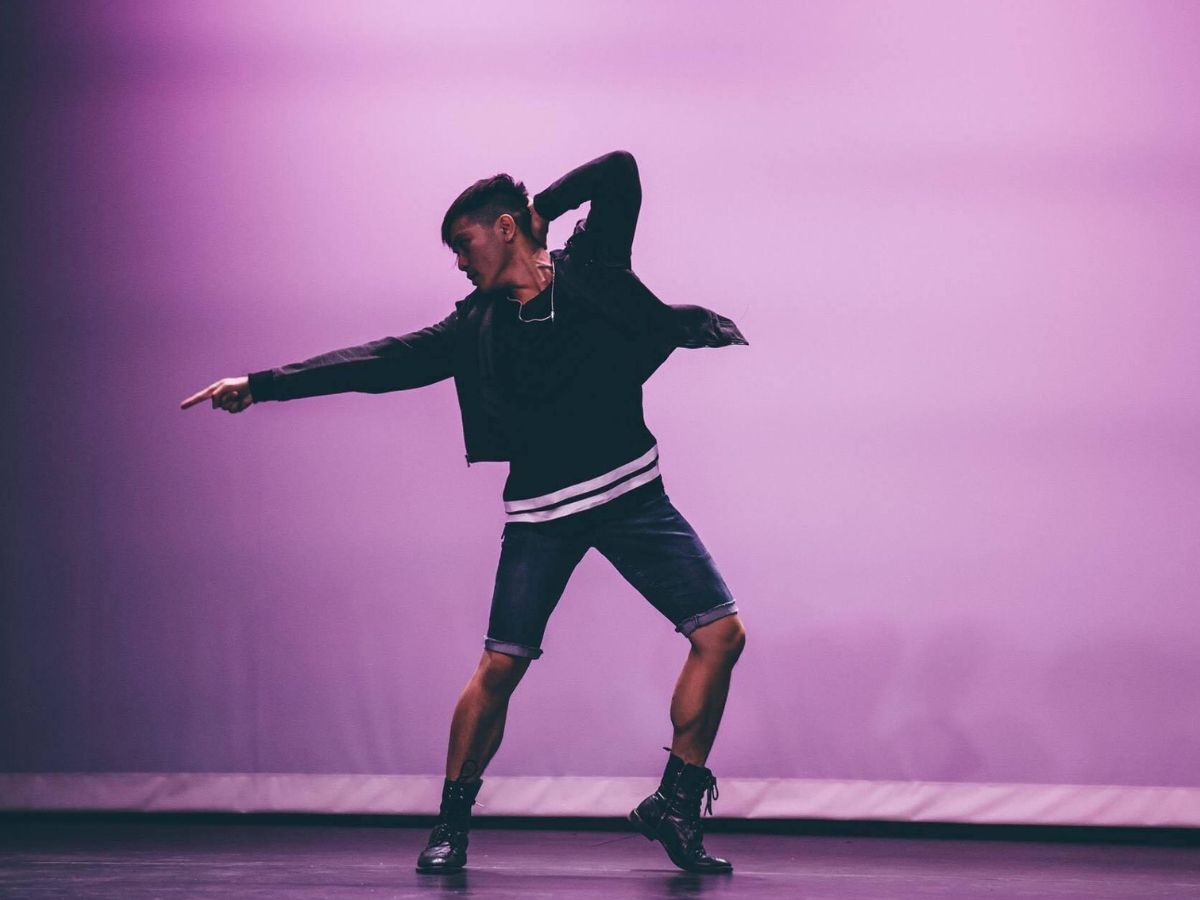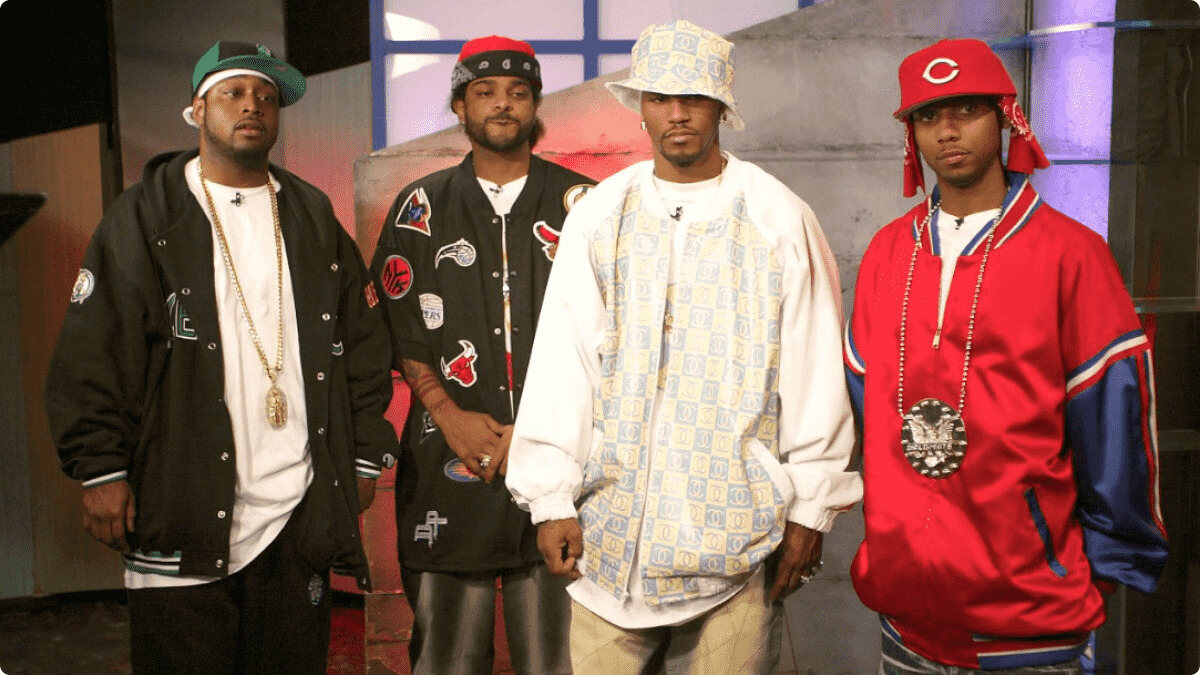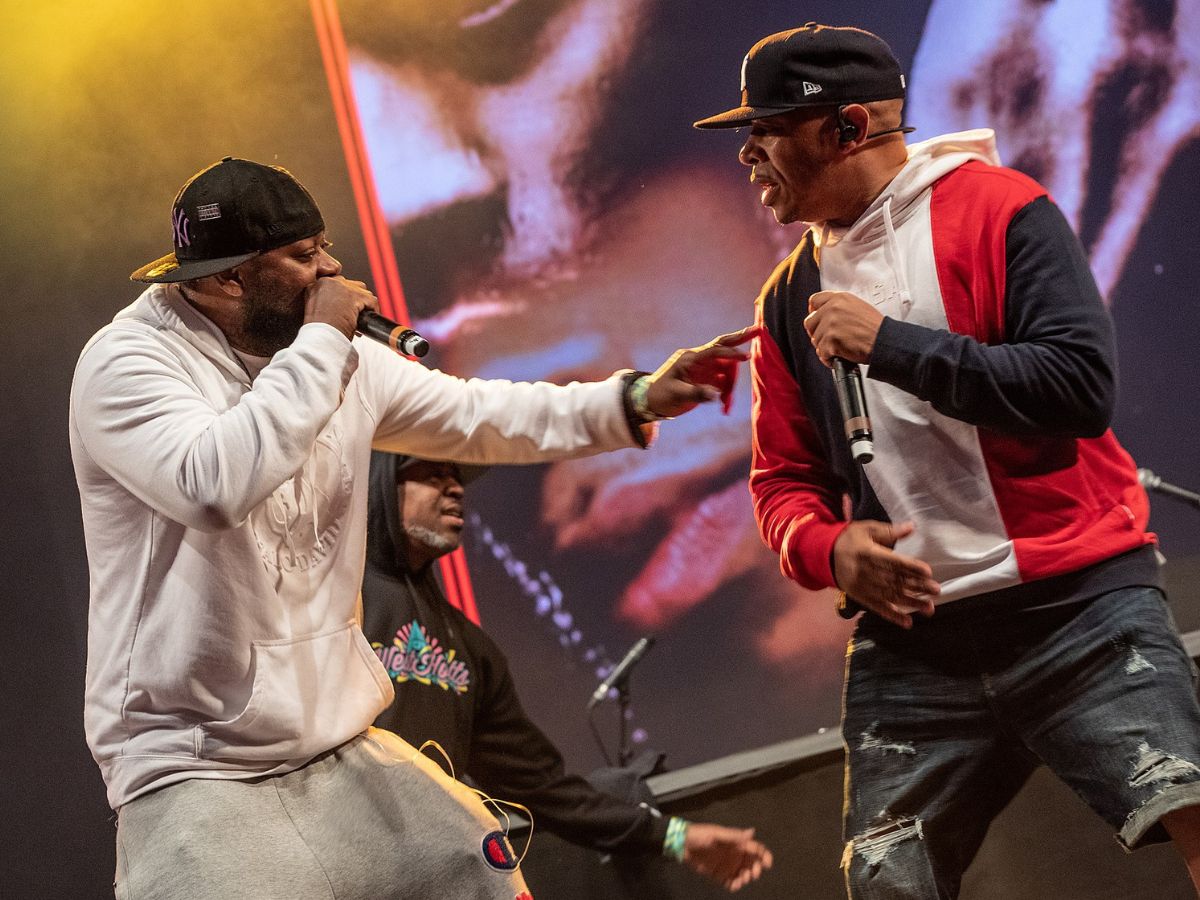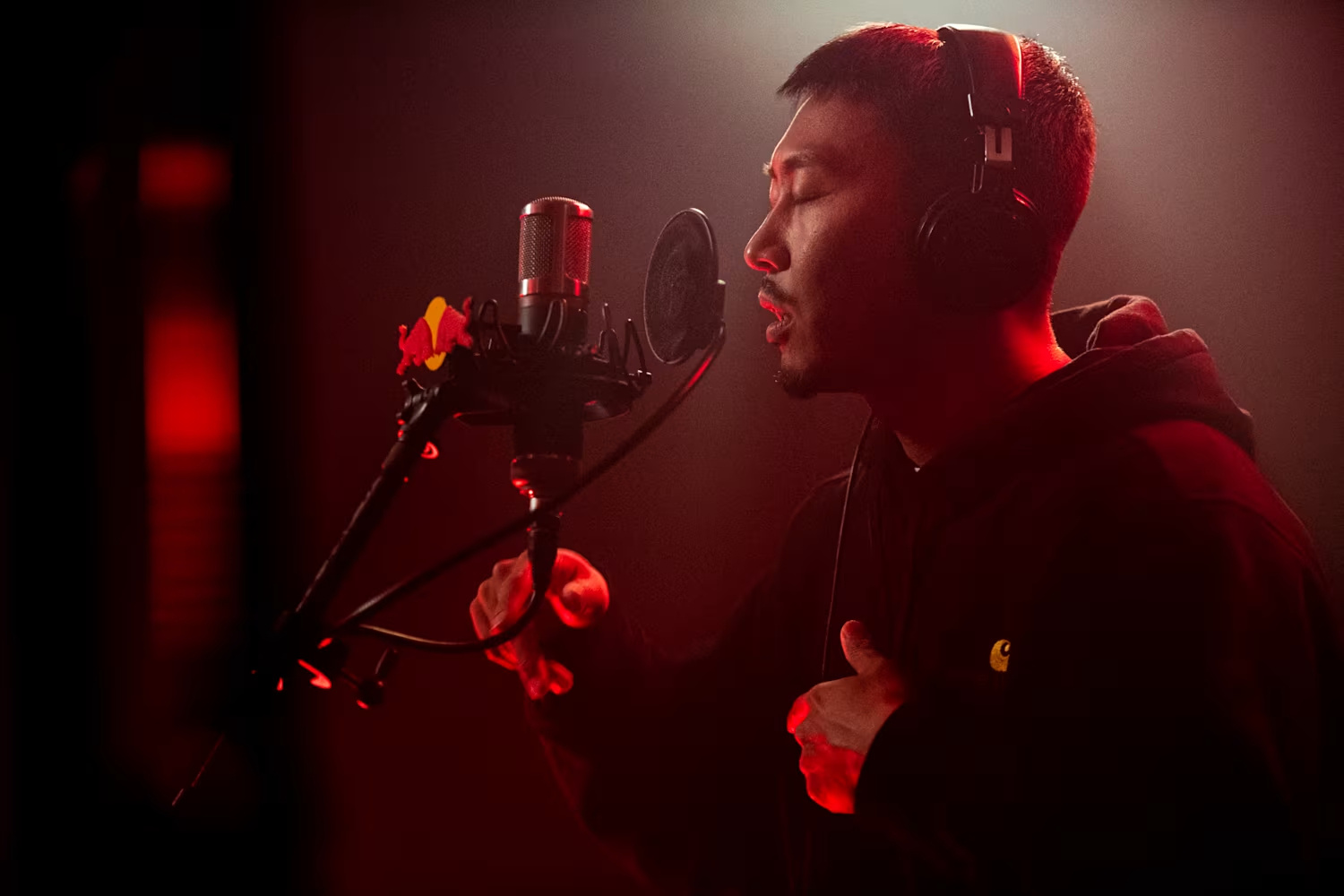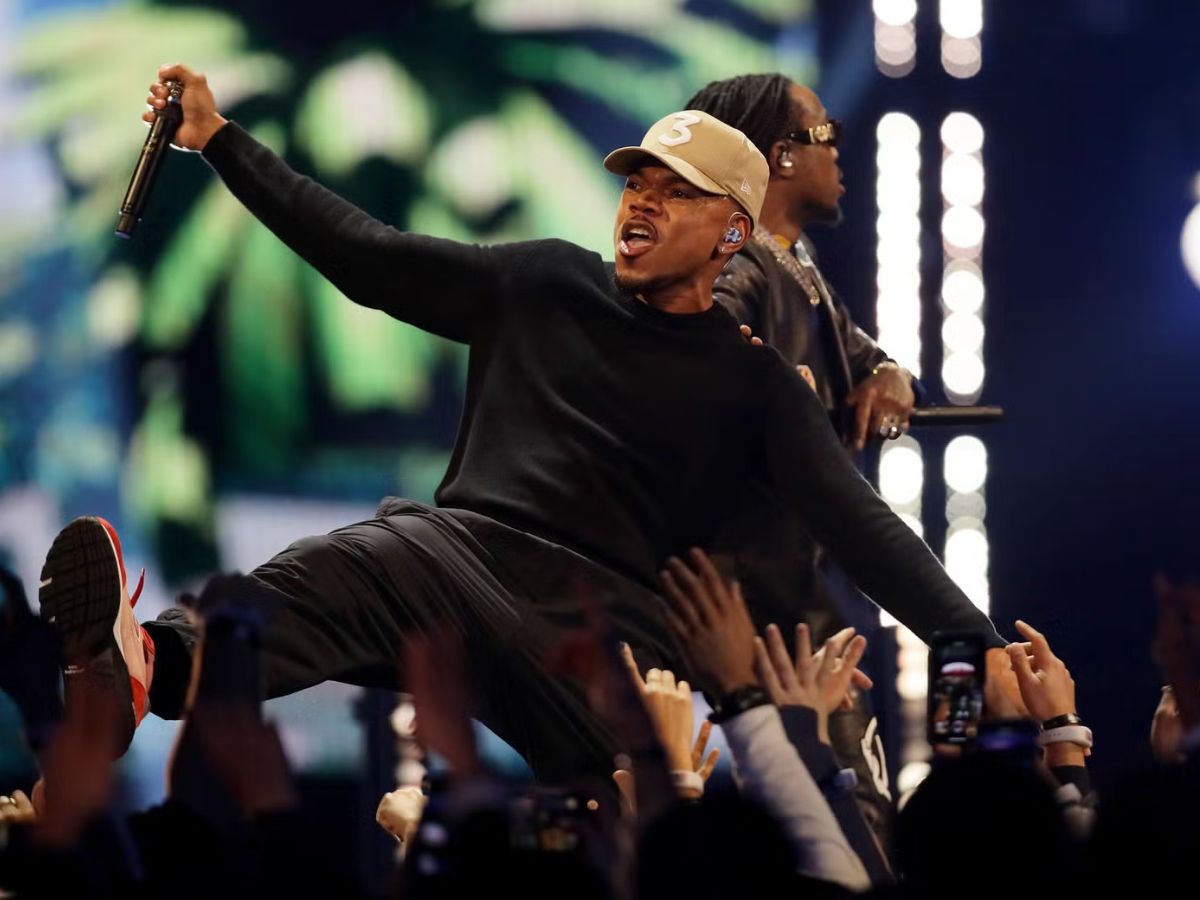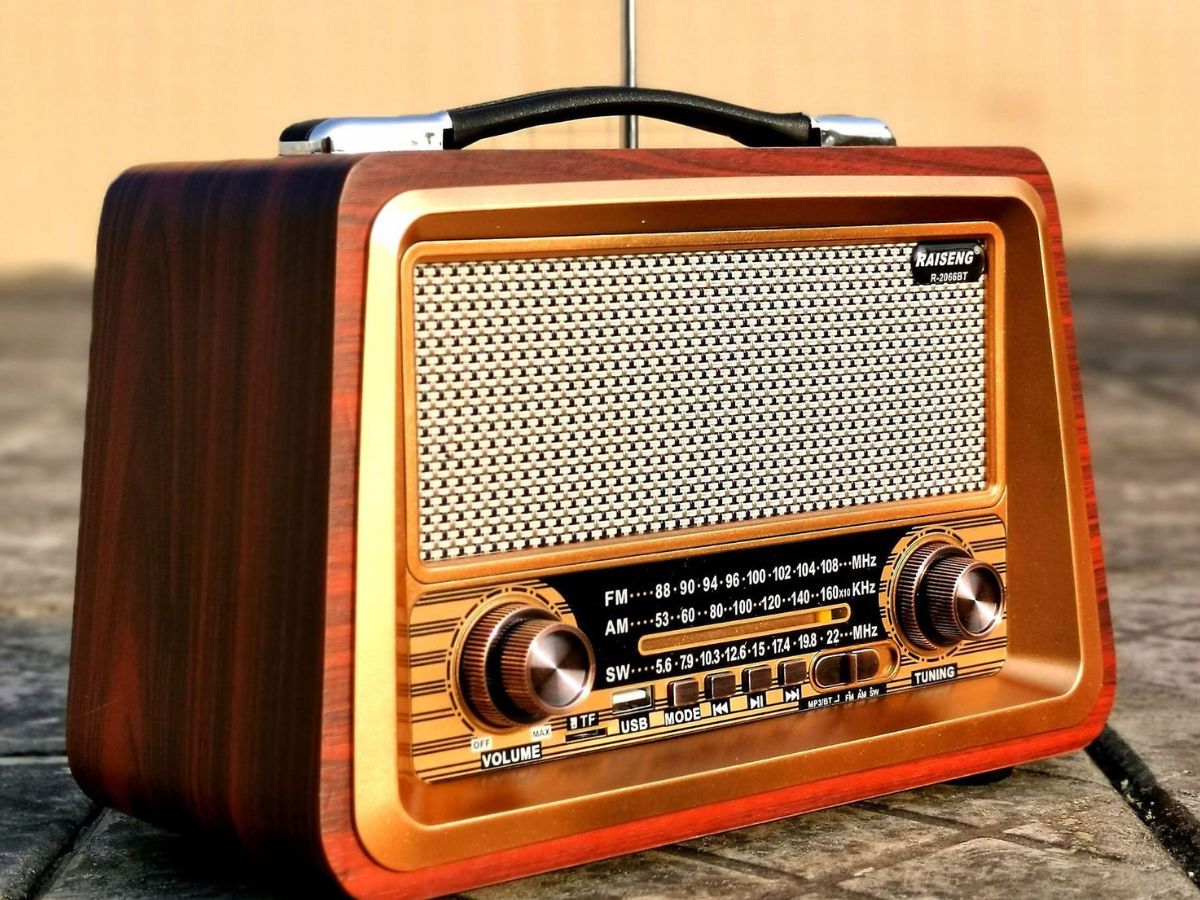

Hip Hop
What Is The Radio Station For Hip Hop
Modified: March 3, 2024
Discover the hip hop radio station that plays all your favorite beats. Tune in now and enjoy the best hip hop music, interviews, and news.
(Many of the links in this article redirect to a specific reviewed product. Your purchase of these products through affiliate links helps to generate commission for AudioLover.com, at no extra cost. Learn more)
Table of Contents
Introduction
Hip hop music, with its infectious beats, powerful lyrics, and influential cultural impact, has captivated audiences worldwide for decades. One of the key mediums through which hip hop has reached the masses is through radio stations dedicated to the genre. Hip hop radio stations provide a platform for artists to showcase their music, connect with listeners, and shape the direction of the genre as a whole.
In this article, we will delve into the world of hip hop radio stations, exploring their history, evolution, and impact on the music industry. We will also highlight some of the influential hip hop radio personalities who have played a significant role in shaping the genre’s trajectory. Additionally, we will touch on the challenges faced by hip hop radio stations in an ever-changing media landscape and discuss the future of this dynamic platform.
From its roots in the Bronx during the 1970s to its global dominance today, hip hop has come a long way. And throughout its journey, radio has been a constant companion, amplifying the voices of hip hop artists and providing a platform for their creativity to thrive.
So, let’s turn up the dial and tune in to the rich history and captivating world of hip hop radio.
History of Hip Hop Radio
The history of hip hop radio can be traced back to the 1970s, when the genre was still in its infancy. The rise of hip hop music can be attributed to innovative DJs and radio personalities who recognized its potential and gave it a platform to be heard.
One of the pioneers of hip hop radio was DJ Kool Herc, whose innovative technique of using two turntables to extend the instrumental breaks of songs laid the foundation for the genre’s iconic sound. DJ Kool Herc’s legendary parties in the Bronx showcased the power of hip hop music and served as a launching pad for many aspiring artists.
As hip hop gained momentum, radio stations began to take notice. In the early 1980s, Mr. Magic and Marley Marl introduced the world to the first hip hop radio show, “Rap Attack,” on New York’s WBLS. This groundbreaking show featured exclusive interviews, live performances, and the latest hip hop tracks, showcasing the talent emerging from the streets of New York City.
By the mid-1980s, hip hop radio stations began to emerge across the United States, offering a platform for regional artists to gain exposure. Stations such as Yo! MTV Raps and Hot 97 in New York City and 92.3 The Beat in Los Angeles propelled hip hop into the mainstream and solidified its position as a cultural powerhouse.
The 1990s marked a golden era for hip hop radio, with radio personalities such as Funkmaster Flex, Big Boy, and Angie Martinez becoming household names. These DJs and radio hosts not only played the latest hip hop hits but also served as tastemakers, introducing listeners to up-and-coming artists and shaping the direction of the genre.
Throughout the 2000s and into the present day, hip hop radio has continued to evolve. The rise of digital streaming platforms and internet radio stations has provided new opportunities for artists and listeners to connect. Hip hop radio stations have embraced these new technologies, expanding their reach and engaging with a global audience.
Today, hip hop radio stations play a vital role in promoting and preserving the culture of hip hop. They continue to be a driving force in breaking new artists, sharing the latest trends, and keeping listeners connected to the pulse of the genre.
Evolution of Hip Hop Radio Stations
Since their inception, hip hop radio stations have evolved alongside the genre, adapting to changes in technology, audience preferences, and the music industry as a whole. From their humble beginnings on AM and FM frequencies to the digital age of streaming, the evolution of hip hop radio stations has been marked by innovation and the quest to connect with listeners in new and impactful ways.
In the early days, hip hop radio stations were primarily found on the traditional AM and FM dials. These stations played a mix of hip hop, R&B, and other urban music genres, catering to a regional audience. DJs and radio personalities played a significant role in curating the playlist and engaging with listeners through live on-air interactions and interviews.
As technology advanced, the emergence of satellite radio in the 1990s opened up new possibilities for hip hop radio stations to reach a broader audience. Satellite radio provided unparalleled sound quality and allowed for a wider range of programming options. Stations like Shade 45 on SiriusXM became go-to destinations for exclusive interviews, uncensored content, and underground hip hop music.
In the 2000s, the internet revolutionized the way people consumed music, and hip hop radio stations quickly adapted to the digital landscape. Online streaming platforms, such as Pandora, Spotify, and iHeartRadio, allowed listeners to access their favorite hip hop stations from anywhere in the world. This global reach not only expanded the audience but also provided new avenues for independent artists to showcase their talent.
Additionally, the rise of social media platforms like Twitter, Instagram, and YouTube have facilitated direct engagement between hip hop radio stations and their listeners. Stations regularly use these platforms to announce new music releases, interact with fans, and provide behind-the-scenes content. The accessibility of social media has allowed for a more intimate and interactive relationship between stations and their audience.
Furthermore, the integration of hip hop into mainstream popular culture has led to collaborations between hip hop radio stations and other media outlets. Stations often host live events, sponsor concerts, and collaborate with television networks and streaming platforms to provide exclusive content to their audience. This cross-media promotion has further solidified the influence and reach of hip hop radio stations.
Looking towards the future, the evolution of hip hop radio stations continues with the rise of voice-controlled smart speakers and artificial intelligence. As technologies like Amazon Alexa and Google Assistant become more prevalent, listeners can access their favorite hip hop stations with just a voice command, further enhancing the convenience and accessibility of the genre.
Overall, the evolution of hip hop radio stations has been characterized by embracing new technologies, adapting to changing listener preferences, and staying ahead of the curve in an ever-evolving media landscape. As the genre continues to grow and evolve, so too will the platforms that bring hip hop music to the masses.
Format and Programming of Hip Hop Radio Stations
Hip hop radio stations employ a variety of formats and programming to cater to the diverse tastes of their listeners while staying true to the essence of the genre. From playing the latest chart-topping hits to showcasing underground talent and providing insightful commentary, the format and programming of hip hop radio stations are crucial in creating a compelling listening experience.
One of the most common formats used by hip hop radio stations is the “all hip hop” format, where the focus is exclusively on hip hop music. These stations play a mix of current hits, classic tracks, and underground gems to cater to a wide range of listeners. By dedicating their airtime solely to hip hop, these stations immerse the audience in the genre and create a cohesive and immersive listening experience.
Another popular format is the “urban contemporary” format, which combines hip hop with other related genres like R&B, reggae, and dancehall. This format allows stations to provide a diverse range of music, appealing to a broad audience while maintaining the hip hop elements that are the core of the station’s identity.
In terms of programming, hip hop radio stations often feature popular on-air personalities and DJs who provide compelling content and engage with listeners. These hosts not only play music but also provide commentary, interviews, and discussions on various topics related to hip hop culture, current events, and social issues.
Morning shows are a staple of hip hop radio, giving listeners a dose of energy and entertainment to kick-start their day. These shows typically feature a blend of music, humor, interviews, and topical discussions to keep audiences engaged during their morning commute or daily routines.
Specialized shows that focus on specific sub-genres or themes within hip hop are also popular. Some stations host dedicated shows for underground artists, showcasing up-and-coming talent and providing a platform for independent artists to gain exposure. Other shows may focus on specific regions, highlighting the unique sounds and styles of hip hop from different cities or countries.
In addition to regular programming, hip hop radio stations often partner with record labels, artists, and event organizers to host exclusive interviews, live performances, and premieres of new music. These collaborations allow stations to stay at the forefront of the industry, providing listeners with exclusive content and behind-the-scenes access.
Furthermore, hip hop radio stations utilize listener interaction through phone calls, social media platforms, and contests to foster a sense of community and engagement. Listeners can request songs, share their opinions, and participate in on-air discussions, creating a dynamic and interactive experience.
The format and programming of hip hop radio stations continue to evolve to meet the ever-changing needs of their audience. Whether it’s through innovative playlists, creative host personalities, or unique collaborations, hip hop radio stations strive to provide a platform that not only entertains but also educates and empowers listeners.
Influential Hip Hop Radio Personalities
Hip hop radio stations have been blessed with a plethora of talented and influential personalities who have played a significant role in shaping the genre’s trajectory. These radio hosts and DJs have become household names, known for their unique styles, charismatic presence, and passion for hip hop. Let’s take a closer look at some of the most influential hip hop radio personalities.
1. Angie Martinez: Known as the “Voice of New York,” Angie Martinez has had a remarkable career in hip hop radio. Her long-running show on Hot 97, “The Angie Martinez Show,” has been a platform for breaking exclusive interviews and revealing the latest industry news. Martinez’s charismatic and relatable approach has made her a trusted voice in hip hop.
2. Funkmaster Flex: A legend in the world of hip hop radio, Funkmaster Flex has been a staple on New York City’s Hot 97 for decades. Famous for his explosive mixtapes and iconic on-air sound effects, Flex has influenced a generation of DJs and played a pivotal role in breaking new artists in the game.
3. Charlamagne Tha God: While primarily known for his work on The Breakfast Club, a nationally syndicated morning show, Charlamagne Tha God has established himself as a prominent hip hop radio personality. His unfiltered opinions, thought-provoking interviews, and candid discussions on social issues have earned him a loyal following and respect within the industry.
4. Big Boy: Big Boy, the host of Big Boy’s Neighborhood on Los Angeles’ Power 106, has been a mainstay in hip hop radio for years. Known for his warm and approachable demeanor, Big Boy has conducted memorable interviews with some of the biggest names in the industry, showcasing his ability to connect with both artists and listeners alike.
5. Ebro Darden: As the host of Hot 97’s “Ebro in the Morning,” Ebro Darden has become a recognizable figure in hip hop radio. With his vast knowledge of the industry and his willingness to tackle controversial topics head-on, Ebro brings a unique perspective to the airwaves and remains a respected voice in hip hop culture.
These are just a few examples of the many influential hip hop radio personalities who have left an indelible impact on the genre. Their passion, dedication, and ability to connect with listeners have played a crucial role in shaping the culture and driving the success of hip hop radio stations.
It is important to recognize and celebrate the contributions of these individuals who have not only entertained audiences but also served as gatekeepers, trendsetters, and ambassadors of hip hop music and culture.
Impact of Hip Hop Radio on the Music Industry
Hip hop radio has had a profound impact on the music industry, shaping trends, breaking new artists, and influencing the direction of the genre. From providing a platform for artists to showcasing emerging talent, hip hop radio stations have played a pivotal role in the success and growth of hip hop music.
One of the most significant contributions of hip hop radio is its ability to break new artists and introduce them to a wider audience. Radio stations have the power to make or break a song, and when they embrace a new hip hop track, it can catapult an artist to stardom. The support of hip hop radio stations has allowed countless aspiring artists to gain recognition and secure record deals.
Additionally, hip hop radio has been instrumental in championing the underground hip hop scene. While mainstream radio stations primarily focus on commercial hits, hip hop radio stations often dedicate airtime to showcasing underground and independent artists. This support has created an avenue for lesser-known artists to gain exposure and build a fanbase.
Moreover, hip hop radio has been a driving force in shaping musical trends within the genre. DJs and radio personalities curate playlists that reflect the current sound and style of hip hop, introducing listeners to new sounds and helping to popularize emerging sub-genres. This influential role has allowed hip hop radio to shape the direction of the music industry as a whole.
Hip hop radio also acts as a platform for artists to connect with their fans and build a loyal following. Through on-air interviews, live performances, and social media collaborations, radio stations provide artists with opportunities to engage directly with their audience. This interaction fosters a sense of community and cultivates a dedicated fanbase that supports and promotes their music.
Additionally, the impact of hip hop radio extends beyond just music. Radio stations have become cultural influencers, playing a key role in shaping hip hop culture and acting as a voice for social issues. Hip hop radio hosts often address topics such as racial inequality, social justice, and political activism, using their platform to educate, inspire, and spark important conversations.
Overall, hip hop radio has had a significant impact on the music industry, elevating artists, introducing new sounds, and influencing the direction of the genre. Its ability to break new artists, champion underground talent, and shape musical trends has solidified its position as a driving force in hip hop culture and a powerful medium within the music industry.
Challenges Faced by Hip Hop Radio Stations
While hip hop radio stations have played a significant role in shaping the genre and connecting with audiences, they also face several challenges in an ever-evolving media landscape. These challenges can range from competition from digital platforms to the need to adapt to changing listener preferences. Let’s explore some of the key challenges faced by hip hop radio stations.
One major challenge is the rise of digital streaming platforms and online radio. Services like Spotify, Apple Music, and Pandora have revolutionized the way people consume music, offering personalized playlists and on-demand access to millions of songs. As a result, some listeners have shifted away from traditional radio, impacting the listenership and reach of hip hop radio stations.
Moreover, the availability of internet streaming platforms presents a challenge in terms of competition for advertising revenue. With options like YouTube, SoundCloud, and social media platforms allowing artists to easily upload and share their music, advertisers have more platforms to consider for their marketing campaigns. This can make it more challenging for hip hop radio stations to secure advertising partnerships and generate revenue.
Another challenge is the changing landscape of listener preferences and consumption habits. Today’s listeners have more control over what they listen to and when they listen to it. This shift towards on-demand content has led to a decline in live radio listenership. Hip hop radio stations must find innovative ways to engage with their audience and provide unique experiences to stay relevant in a saturated media landscape.
Additionally, hip hop radio stations face the challenge of staying ahead of emerging trends and capturing the attention of younger demographics. As the genre evolves and new artists emerge, radio stations must constantly adapt their playlists and programming to reflect the current sound and capture the interest of younger listeners.
The influence of social media and digital platforms also presents challenges for hip hop radio stations. Social media allows artists to directly connect with their fans and promote their music, bypassing traditional radio promotion. Stations must find ways to leverage social media to amplify their reach and maintain a strong presence in the online space.
Lastly, issues around diversity and representation can also pose challenges for hip hop radio stations. The genre is incredibly diverse, with a wide range of sub-genres, regional sounds, and artists from different backgrounds. It is crucial for radio stations to reflect this diversity in their programming, on-air talent, and decision-making processes to ensure that all voices are heard and represented.
Despite these challenges, hip hop radio stations continue to carve out their space and remain influential within the music industry. By embracing new technologies, adapting to changing listener preferences, and staying at the forefront of the culture, hip hop radio stations can navigate these challenges and play a vital role in shaping the future of the genre.
Future of Hip Hop Radio
The future of hip hop radio is poised to be an exciting and dynamic one, as the genre continues to evolve and adapt to new technologies and listener preferences. While the rise of digital platforms and changing media landscape present challenges, hip hop radio stations are finding innovative ways to stay relevant and engage with their audience.
One key aspect of the future of hip hop radio is the integration of digital streaming platforms. Many hip hop radio stations have already embraced online streaming services, allowing listeners to access their favorite shows and playlists anytime, anywhere. This move towards digital platforms helps to reach a wider audience and gives listeners the convenience of on-demand content.
Additionally, voice-controlled smart speakers and artificial intelligence are playing an increasingly significant role in the future of radio. As technologies like Amazon Alexa and Google Assistant become more prevalent, listeners can simply ask their smart speakers to play their favorite hip hop radio stations or hear the latest tracks from their preferred artists. This hands-free and voice-activated experience offers convenience and accessibility, and hip hop radio stations will continue to adapt to these emerging platforms.
Furthermore, personalized playlists and algorithm-driven recommendations are shaping the future of hip hop radio. With vast amounts of data at their disposal, radio stations can curate playlists that cater to individual listener preferences. These personalized experiences allow for a deeper connection with the audience and provide opportunities for discovering new artists and songs.
Another exciting development is the integration of visual content into radio experiences. Social media platforms like Instagram and YouTube have already shown the power of visuals in engaging with audiences. Hip hop radio stations can leverage these platforms to provide behind-the-scenes content, exclusive interviews, and live performances that supplement the audio experience and further connect with their listeners.
Community engagement will continue to be crucial in the future of hip hop radio. Stations will look for ways to foster a sense of community, whether it’s through interactive social media campaigns, listener events, or partnerships with local artists and organizations. By nurturing these connections, hip hop radio stations can create a loyal and engaged fanbase.
In terms of content, hip hop radio stations will continue to break new artists, champion underground talent, and shape musical trends. With their ability to discover and amplify the next big thing in hip hop, radio stations have the power to influence the direction of the genre and introduce listeners to the sounds of the future.
Overall, while the landscape of media and technology is ever-changing, hip hop radio stations are well-positioned to adapt and thrive. By embracing digital platforms, personalizing the listening experience, integrating visuals, engaging with the community, and continuing to curate high-quality content, hip hop radio stations will remain a vital part of the music industry and continue to connect artists and audiences around the world.
Conclusion
Hip hop radio stations have played a vital role in shaping the trajectory and culture of the genre. From the early days of DJ Kool Herc’s legendary parties to the digital era of streaming platforms, hip hop radio has remained a powerful medium for artists and audiences to connect.
The history of hip hop radio is rich with influential personalities and pioneering stations that have propelled the genre to new heights. DJs like Funkmaster Flex and radio hosts like Angie Martinez have become icons, shaping trends and breaking new artists. Their passion for hip hop and dedication to providing listeners with engaging content have been instrumental in the success and growth of the genre.
The evolution of hip hop radio has seen the industry adapt to new technologies and changing listener preferences. From traditional AM and FM frequencies to satellite radio and online streaming platforms, hip hop radio stations have embraced these shifts to stay relevant and reach a global audience. The integration of voice-controlled smart speakers, personalized playlists, and visual content has opened up exciting avenues for the future of hip hop radio.
Despite the challenges posed by digital platforms and shifting media landscapes, hip hop radio stations have continued to thrive. Their ability to break new artists, champion underground talent, shape musical trends, and engage with their communities showcases their enduring impact on the music industry.
In conclusion, hip hop radio stations are an integral part of hip hop culture, providing a platform for artists to be heard and connecting audiences worldwide. As the genre continues to evolve, so too will the platforms that bring hip hop music to the masses. Hip hop radio stations will remain at the forefront of the industry, shaping the future of the genre and continuing to inspire and entertain listeners for years to come.

